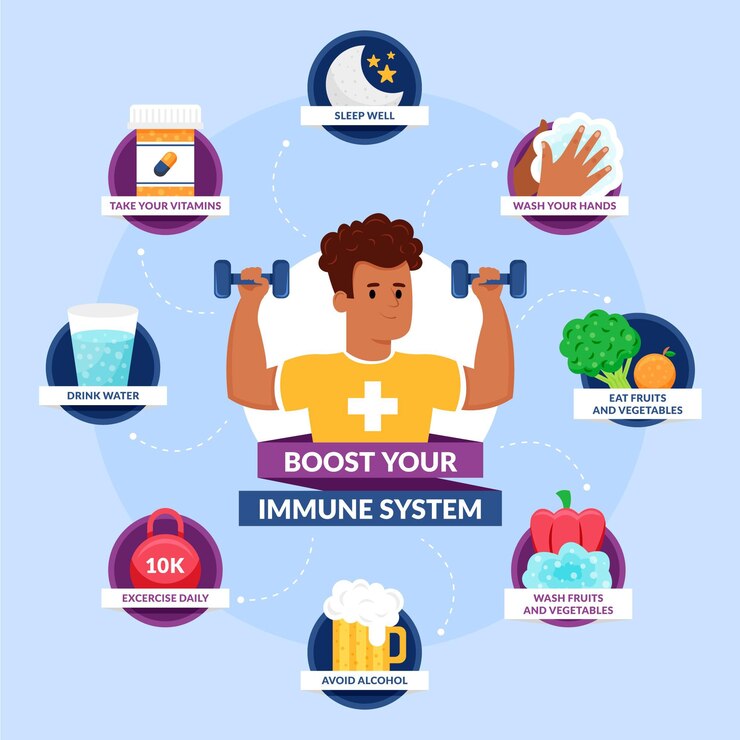Tech
The Future of Gemeinde Administration in Nidwalden: Embracing New Software Systems
Published
5 months agoon
By
admin
Nidwalden, a picturesque canton nestled in central Switzerland, is not only known for its stunning natural beauty and historical landmarks but also for its forward-thinking approach to governance and public service delivery. As local municipalities, or gemeinden, continue to evolve, so does the technology that underpins their operations. One of the most significant shifts in recent years is the implementation of new software systems designed to improve efficiency, streamline processes, and enhance citizen engagement.
The Evolution of Gemeinde Administration in Nidwalden
Historically, managing local government affairs in small cantons like Nidwalden has been a complex and time-consuming task. Local authorities were often reliant on outdated methods of record-keeping and communication. The introduction of digital tools, however, has changed this dynamic.
In recent years, local gemeinden have been increasingly turning to software systems designed to streamline administrative processes, improve public service delivery, and engage citizens more effectively. These systems include tools for financial management, citizen communication, document handling, and more. With the rise of cloud computing, mobile applications, and other innovations, these new systems offer the potential to create a more connected, transparent, and efficient local government.
Key Benefits of New Software Systems for Gemeinden in Nidwalden
1. Improved Efficiency and Automation
One of the primary reasons local governments in Nidwalden have turned to new software solutions is the potential for improved efficiency. Manual processes such as filling out paperwork, tracking documents, and responding to inquiries are time-consuming and prone to human error.
2. Enhanced Transparency and Citizen Engagement
Public trust in local government is crucial, and new software systems play a significant role in enhancing transparency. Many modern systems offer features that allow citizens to access public records, track the status of requests or permits, and even participate in local decision-making processes.
For instance, software platforms can provide residents with easy access to local budgets, meeting minutes, and planning documents. Some systems even allow for online voting on community issues, giving citizens a more direct voice in their local government’s decisions. This increased transparency helps foster trust between local officials and residents, leading to stronger community engagement.
3. Better Data Management and Decision-Making
With the adoption of modern software, municipalities in Nidwalden are able to manage vast amounts of data more effectively. These systems can consolidate various data sources—such as population statistics, tax records, and infrastructure data—into one centralized platform.
With this data at their fingertips, local governments can make more informed, evidence-based decisions. For example, better data can improve urban planning, infrastructure development, and service delivery. Furthermore, data-driven decisions are more likely to be aligned with the actual needs of the community, rather than relying on assumptions or outdated information.
4. Cost Savings
By automating routine tasks and streamlining workflows, new software systems can also lead to significant cost savings. Local governments in Nidwalden, like elsewhere, face pressure to balance budgets while maintaining high-quality services for residents.
Implementing efficient software solutions can reduce operational costs by eliminating the need for manual labor, reducing errors, and improving resource allocation. In some cases, municipalities can reduce staffing costs by automating certain functions. Additionally, better resource management means fewer delays, less duplication of effort, and overall higher efficiency in service delivery.
5. Seamless Integration and Interoperability
Many municipalities in Nidwalden are embracing software solutions that are part of larger digital ecosystems. These systems often feature interoperability, allowing them to integrate seamlessly with other local, regional, and national government platforms.
The Role of Cloud Computing in Gemeinde Software Solutions
Cloud computing has been a game-changer for municipalities looking to modernize their operations. By moving their software systems to the cloud, gemeinden in Nidwalden can access critical tools and data from anywhere, at any time, with minimal infrastructure investment.
Cloud-based software is also more scalable, meaning that municipalities can add new features or users as their needs evolve without having to worry about investing in additional physical hardware. Cloud platforms are also known for their reliability, with built-in redundancies and robust security measures to ensure that sensitive government data is protected.
Challenges in Implementing New Software Systems
While the benefits of new software systems for gemeinden in Nidwalden are clear, there are several challenges that local governments may face during the implementation process.
1. Initial Investment and Training Costs
The upfront cost of implementing a new software system can be significant. Municipalities must not only pay for the software itself but also for training employees and updating infrastructure. While the long-term benefits often outweigh the initial costs, the financial commitment can be a barrier, especially for smaller gemeinden with limited budgets.
2. Resistance to Change
As with any technological transition, there may be resistance from employees and residents who are accustomed to traditional ways of doing things. Local government staff may require training and time to adapt to new systems, while residents may initially feel hesitant to adopt new methods of interaction. Overcoming this resistance requires clear communication, training, and support from leadership.
3. Data Privacy and Security Concerns
With the increased digitization of government services, ensuring the privacy and security of citizen data becomes a critical concern. Gemeinden must work with trusted software providers that comply with data protection laws and implement robust cybersecurity measures. Regular audits and updates are also necessary to maintain the integrity of the system.
Conclusion
The shift towards new software systems in gemeinden across Nidwalden represents a significant step towards modernization and increased efficiency in local governance. By embracing technology, local municipalities can provide faster, more efficient services to residents, promote transparency, and make better-informed decisions. However, like any transition, there are challenges along the way, particularly when it comes to costs, training, and data security.
Ultimately, the future of local governance in Nidwalden looks bright, with new software systems laying the foundation for more responsive, accessible, and transparent public services. As technology continues to evolve, local governments in Nidwalden are well-positioned to adapt and thrive in an increasingly digital world.
Frequently Asked Questions (FAQs)
1. What is the main advantage of using software systems for gemeinden in Nidwalden?
The primary advantage is increased efficiency. Software systems help automate administrative tasks, reduce human errors, and provide better data management, leading to cost savings and improved service delivery.
2. How can new software improve citizen engagement in Nidwalden?
New software systems can offer platforms for citizens to access public records, track permits, and even participate in local decision-making, increasing transparency and fostering greater community involvement.
3. What are the common challenges in implementing new software systems for local governments?
Challenges include initial investment costs, employee resistance to change, and concerns around data privacy and security. Overcoming these challenges requires strategic planning, proper training, and robust security measures.
4. How do cloud-based systems benefit local governments in Nidwalden?
Cloud-based systems offer scalability, reliability, and flexibility, enabling local governments to access data and software tools from anywhere and scale up as needed without significant infrastructure investment.
5. How do new software systems help with decision-making in Nidwalden municipalities?
These systems consolidate data from various departments, providing local governments with the information they need to make data-driven decisions that align with community needs and priorities.
6. What are the privacy concerns associated with government software systems?
Privacy concerns mainly revolve around the security of sensitive citizen data. To mitigate these risks, municipalities must choose software vendors that comply with data protection laws and implement strong cybersecurity protocols.
7. Can new software systems be integrated with existing government infrastructure in Nidwalden?
Yes, many modern software systems are designed to integrate with existing government platforms, improving interoperability and data flow across different departments and levels of government.
By understanding both the potential and challenges of new software systems, local governments in Nidwalden can ensure they are well-prepared to provide efficient, secure, and transparent services to their citizens in the future.

Love2Love.lv – Meaningful Matches Online | Your Trusted Dating Platform

Discover Candizi – Flavor-Packed Candy Bliss

Top Stock Picks Daily | 5StarStocks.com Market Insights

Numberlina – Fun Math Games for Kids & Learning Tools

How to Track WhatsApp Activity – Earn Tuffer (2025 Guide)
6463276197 Explained: Understanding Its Significance
Understanding the Features and Benefits of amzp22x

WellHealth: Top 5 Science-Backed Muscle Building Tips
Wildest Influencer Fails & Viral Moments Exposed InfluencersGoneWild

Bumped Things NYT Crossword Answer & Clues Explained

People’s Top Celebrity Stories of 2025: The Biggest Headlines

Discover Candizi – Flavor-Packed Candy Bliss

Love2Love.lv – Meaningful Matches Online | Your Trusted Dating Platform
6463276197 Explained: Understanding Its Significance

Top Stock Picks Daily | 5StarStocks.com Market Insights

Fixing Jacksonville Computer Network Issues Fast

How to Track WhatsApp Activity – Earn Tuffer (2025 Guide)
Understanding the Features and Benefits of amzp22x
Wildest Influencer Fails & Viral Moments Exposed InfluencersGoneWild

WellHealth: Top 5 Science-Backed Muscle Building Tips

Love2Love.lv – Meaningful Matches Online | Your Trusted Dating Platform

Discover Candizi – Flavor-Packed Candy Bliss

Top Stock Picks Daily | 5StarStocks.com Market Insights

Numberlina – Fun Math Games for Kids & Learning Tools

How to Track WhatsApp Activity – Earn Tuffer (2025 Guide)
6463276197 Explained: Understanding Its Significance
Understanding the Features and Benefits of amzp22x

WellHealth: Top 5 Science-Backed Muscle Building Tips
Wildest Influencer Fails & Viral Moments Exposed InfluencersGoneWild

Bumped Things NYT Crossword Answer & Clues Explained
Categories
Trending
-

 Uncategorized2 months ago
Uncategorized2 months agoTop 10 Cloud Computing Platforms
-

 Uncategorized6 months ago
Uncategorized6 months agoExploring JUQ-722 Sub Indo: A Detailed Insight into Popular Subtitled Content
-

 Uncategorized3 months ago
Uncategorized3 months ago5 Essential BIOS PS2 Configuration Techniques
-

 Uncategorized4 weeks ago
Uncategorized4 weeks agoPeople’s Top Celebrity Stories of 2025: The Biggest Headlines
